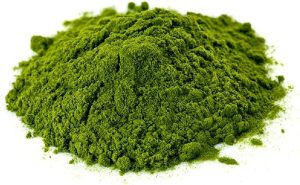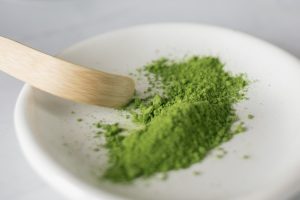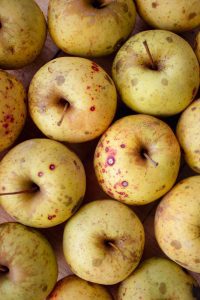
- Overview of Bromelain from Pineapple
- Brief History of Bromelain from Pineapple
- Functions of Bromelain from Pineapple
- Recommended Daily Intake (RDI), Recommended Dietary Allowance (RDA), Adequate Intake (AI), or Reference Nutrient Intake (RNI) for Bromelain from Pineapple
- Deficiency of Bromelain from Pineapple
- Food Sources of Bromelain from Pineapple and Where to Get It From
- Bromelain from Pineapple and Its Interaction with Other Medications
- Websites and Articles to Delve into the Benefits of Bromelain from Pineapple
- Disclaimer
Overview of Bromelain from Pineapple
Bromelain is a mixture of proteolytic enzymes found in the pineapple plant (Ananas comosus), particularly in the stem and fruit.
Renowned for its therapeutic properties, bromelain has anti-inflammatory, anti-edematous, and digestive benefits. Its protease enzymes aid in the breakdown of proteins, facilitating digestion and absorption. Beyond its digestive role, bromelain demonstrates anti-inflammatory effects by modulating immune responses and reducing swelling. This has led to its use as a natural remedy for conditions like osteoarthritis and sinusitis. Additionally, bromelain’s ability to enhance nutrient absorption and reduce inflammation has attracted interest in sports medicine and post-surgical recovery.
While it’s generally considered safe, individuals with allergies to pineapple should exercise caution. As a supplement, bromelain offers a versatile natural remedy with potential health applications.
Brief History of Bromelain from Pineapple
Bromelain, a mixture of proteolytic enzymes derived from pineapple (Ananas comosus), has a history rooted in traditional medicine among the indigenous people of South and Central America. The native populations, particularly in regions where pineapples grew abundantly, utilized pineapple for various medicinal purposes, including treating wounds and reducing inflammation.
The extraction and isolation of bromelain began in the late 19th century. In the early 20th century, researchers identified its proteolytic properties, leading to its recognition as an enzyme complex. Bromelain gained attention during World War II when it was used topically to aid in the healing of wounds.
Since then, bromelain has been the subject of numerous studies exploring its therapeutic applications. Its proteolytic enzymes have found use in the food industry as a meat tenderizer and in the pharmaceutical and cosmetic industries for their anti-inflammatory and exfoliating properties.
Today, bromelain is widely available as a dietary supplement and is researched for its potential benefits in areas such as digestion, inflammation, and sports medicine. Its rich history as a traditional remedy and its continued exploration in modern research highlight the diverse applications and significance of bromelain derived from pineapple.
For more clarity, here’s a brief history of bromelain from pineapple:
| Time Period | Development of Bromelain |
|---|---|
| Pre-19th Century | Indigenous populations in South and Central America use pineapple for traditional medicinal purposes, including wound treatment and inflammation reduction. |
| Late 19th Century | Extraction and isolation of bromelain begin. |
| Early 20th Century | Researchers identify bromelain’s proteolytic properties, recognizing it as an enzyme complex. |
| World War II | Bromelain is used topically to aid in wound healing. |
| Post World War II | Continued research into bromelain’s properties and potential applications in various industries. |
| Modern Era | Bromelain is utilized in the food industry as a meat tenderizer and finds applications in pharmaceuticals and cosmetics. Research explores its benefits in digestion, inflammation, and sports medicine. |
Functions of Bromelain from Pineapple
Bromelain, derived from pineapple, is a mixture of proteolytic enzymes with various functions. Here are some of its notable functions:
- Digestive Aid:
- Bromelain assists in the breakdown of proteins during digestion. It can enhance the digestive process by breaking down complex protein molecules into simpler forms, aiding in nutrient absorption.
- Anti-Inflammatory Properties:
- Bromelain exhibits anti-inflammatory effects by reducing inflammation and swelling. This makes it useful in managing conditions characterized by inflammation, such as arthritis or injuries.
- Wound Healing:
- Historically, bromelain has been applied topically to promote wound healing. Its proteolytic activity may help remove damaged tissue and support the healing process.
- Immune System Support:
- Bromelain may modulate the immune system, contributing to overall immune function. It has been studied for its potential to support the body’s defense mechanisms.
- Sinusitis Relief:
- Due to its anti-inflammatory properties, bromelain is sometimes used to alleviate symptoms of sinusitis. It may help reduce nasal congestion and improve breathing.
- Joint Health:
- Bromelain has been investigated for its role in supporting joint health. It may help manage symptoms associated with conditions like osteoarthritis by reducing inflammation.
- Exfoliation in Skincare:
- In skincare products, bromelain is utilized for its exfoliating properties. It helps remove dead skin cells, promoting a smoother and more radiant complexion.
- Potential Anti-Cancer Properties:
- Some research suggests that bromelain may have anti-cancer properties, including the ability to inhibit the growth of certain cancer cells. However, more studies are needed to fully understand its potential in cancer treatment.
It’s important to note that while bromelain has various potential benefits, individual responses can vary. Additionally, individuals with allergies to pineapple or those taking certain medications should consult with a healthcare professional before using bromelain supplements. Always seek personalized advice for specific health conditions or concerns.
Recommended Daily Intake (RDI), Recommended Dietary Allowance (RDA), Adequate Intake (AI), or Reference Nutrient Intake (RNI) for Bromelain from Pineapple
Bromelain is not classified as an essential nutrient, and there are no standardized daily intake recommendations. Thus, it is very crucial to know that there is no established Recommended Dietary Allowance (RDA), Adequate Intake (AI), or Reference Nutrient Intake (RNI) for bromelain from pineapple.
Bromelain is typically consumed as part of the diet through the consumption of fresh pineapple or as a supplement. However, the concentration of bromelain in pineapple can vary, and the specific content can be affected by factors such as the part of the pineapple consumed and the processing methods.
If individuals are considering bromelain supplements, it’s advisable to follow the recommended dosage provided by the manufacturer or consult with a healthcare professional for guidance. It’s also essential to be aware of potential interactions with medications and any pre-existing health conditions.
Nutritional needs and recommendations may evolve, so it’s a good idea to check with more recent sources or consult with healthcare professionals for the latest information and personalized advice.
Deficiency of Bromelain from Pineapple
As bromelain is not considered an essential nutrient for human health, there is no recognized deficiency state associated with a lack of bromelain. It is an enzyme mixture found in pineapples, particularly in the stem and fruit, and its consumption is generally not essential for meeting daily nutritional requirements.
While bromelain itself is not necessary for the body’s basic functions, pineapple, the natural source of bromelain, does offer other nutritional benefits. Pineapples are a good source of vitamin C, manganese, and dietary fiber. A diet rich in fruits, including pineapples, can contribute to overall health and well-being.
However, it’s worth noting that some individuals may be allergic to bromelain or pineapple. Allergic reactions can range from mild to severe and may include symptoms such as itching, hives, swelling, or difficulty breathing. Individuals with known allergies to pineapple or bromelain should avoid these substances.
As always, if you have specific dietary concerns or health conditions, it’s advisable to consult with a healthcare professional or a registered dietitian for personalized advice. They can help ensure that your nutritional needs are met through a well-balanced diet and, if necessary, the appropriate use of supplements.
Food Sources of Bromelain from Pineapple and Where to Get It From
Bromelain is a mixture of proteolytic enzymes found in pineapples, particularly in the stem and fruit. While fresh pineapple is the primary source of bromelain, it’s important to note that the concentration of bromelain can vary based on factors such as the part of the pineapple consumed and the processing methods. Here are some ways to include bromelain in your diet:
- Fresh Pineapple:
- Consuming fresh pineapple is the most direct and natural way to get bromelain. Ensure that you include the core and stem, as these parts typically have higher bromelain content. Opt for ripe pineapples for the best flavor and nutritional content.
- Pineapple Juice:
- While bromelain content in pineapple juice is generally lower than in fresh pineapple, drinking 100% pure pineapple juice can still provide some of the enzyme. Look for varieties without added sugars for a healthier option.
- Pineapple Supplements:
- Bromelain supplements are available in various forms, including capsules and tablets. These supplements can be found in health food stores or online. If considering supplements, it’s advisable to consult with a healthcare professional to determine appropriate dosage and suitability.
When choosing pineapple or pineapple products, consider the following tips:
- Selecting Ripe Pineapples:
- Choose pineapples with a sweet fragrance and golden color. The fruit should yield slightly when gently pressed.
- Minimizing Processing:
- Fresh, raw pineapple contains the highest levels of bromelain. Processing methods like canning and cooking can reduce bromelain activity.
- Including the Core:
- The core and stem of the pineapple have higher bromelain concentrations, so include them in your consumption.
It’s essential to note that bromelain supplements may have different concentrations, and the dosage should be guided by healthcare professionals, especially for those with pre-existing health conditions or taking medications. As with any dietary component, moderation is key, and a varied diet rich in fruits and vegetables is generally recommended for overall health.
Bromelain from Pineapple and Its Interaction with Other Medications
Bromelain, the mixture of proteolytic enzymes found in pineapples, may interact with certain medications. It’s crucial to be aware of these potential interactions, especially if you are considering bromelain supplements. Here are some considerations:
- Blood Thinners (Anticoagulants/Antiplatelet Drugs):
- Bromelain may have mild blood-thinning properties, and when taken in conjunction with anticoagulant or antiplatelet medications (e.g., warfarin, aspirin), it can increase the risk of bleeding. This interaction could potentially lead to bruising or bleeding complications. Individuals on blood thinners should consult with their healthcare provider before using bromelain supplements.
- Antibiotics:
- There is some evidence to suggest that bromelain may enhance the absorption of certain antibiotics, potentially increasing their effectiveness. However, this interaction is not thoroughly understood, and it’s advisable to consult with a healthcare professional before combining bromelain with antibiotics.
- Sedatives:
- Bromelain might enhance the effects of sedative medications, leading to increased drowsiness or dizziness. If you are taking sedatives or medications with sedative effects, it’s essential to discuss the use of bromelain with your healthcare provider.
- Anti-Hypertensive Medications:
- Bromelain may have blood pressure-lowering effects. Combining bromelain with antihypertensive medications may lead to a further reduction in blood pressure, potentially causing an excessive drop. Individuals on blood pressure medications should consult their healthcare provider before using bromelain supplements.
- Gastrointestinal Medications:
- Bromelain’s digestive properties may interact with certain medications used to manage gastrointestinal conditions. Individuals taking medications for stomach ulcers, acid reflux, or other digestive issues should consult with their healthcare provider before using bromelain.
Always inform your healthcare provider about any supplements you are taking, including bromelain, to ensure that there are no potential interactions with your medications or underlying health conditions. It’s crucial to follow healthcare professionals’ guidance and not self-prescribe supplements, especially if you are on medication or have specific health concerns.
Websites and Articles to Delve into the Benefits of Bromelain from Pineapple
Disclaimer
The information is solely provided for educational purposes. It is not intended to diagnose, treat, cure, or prevent any disease. Seek the advice of your physician or qualified healthcare provider with any questions you may have regarding a medical condition at all times. Never disregard professional medical advice because of something you have read or learned from this article.






